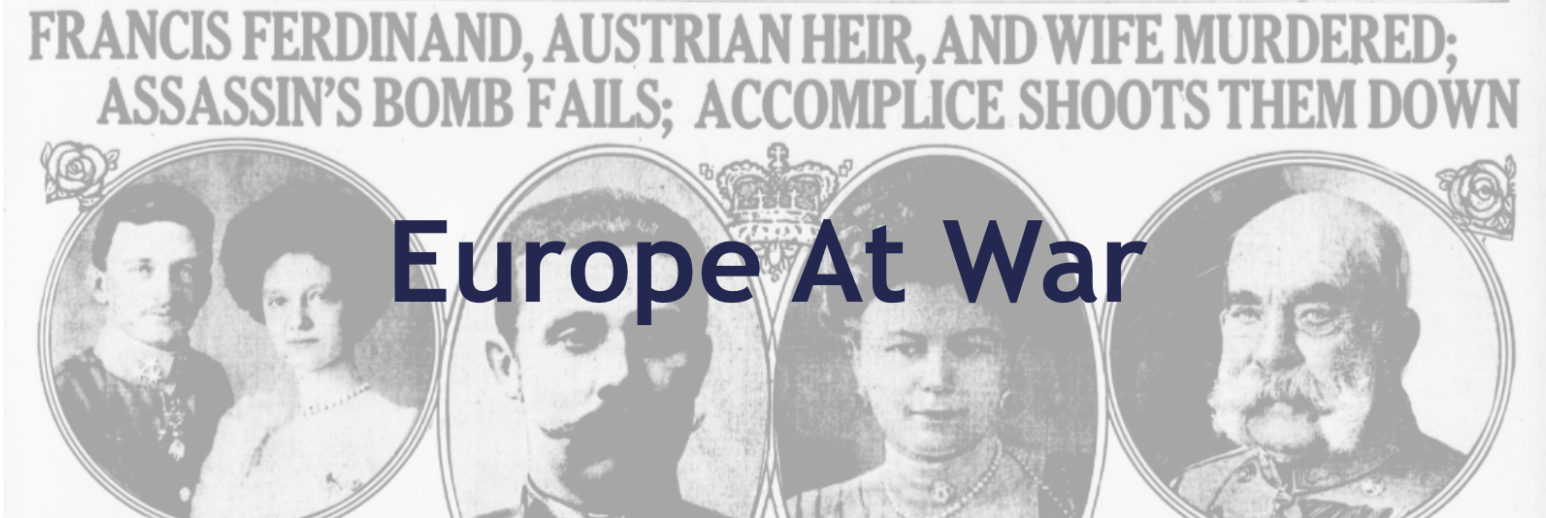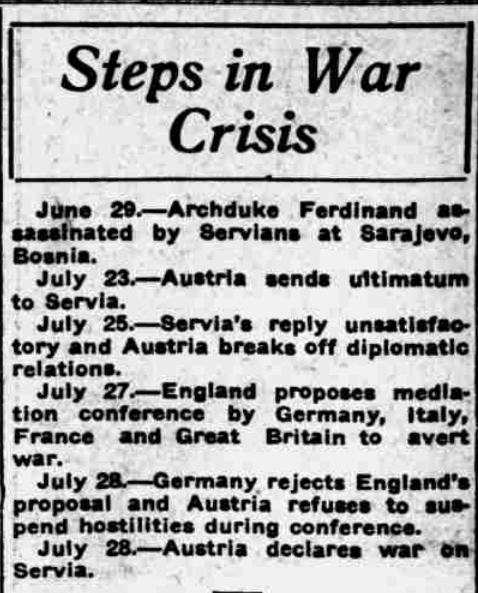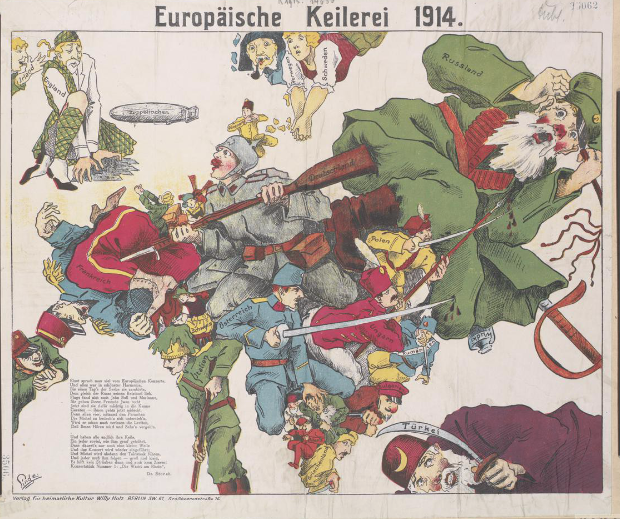
By 1914, tensions in Europe were rising. Imperialism, nationalism, and militarism created competition for dominance and power, and countries formed mutual defense alliances.
On June 28, 1914 Serbians assassinated the heir to the Austrian throne. Austria declared war on Serbia a month later. Soon Europe was engulfed in war.
"The apparent reason for the Austro-Servian war is the refusal of Servia to knuckle down to Austria in her unreasonable demands bearing upon the assassination of Archduke Ferdinand. The real reason for the war is Germany’s fear that without it the triple alliance [of Germany, Austria and Italy] will fall apart while the triangle entente (Russia, France and England) gains in power, thus disturbing the century old balance of power in Europe." - "Men Behind Europe’s Crisis; Men Who Will Do Fighting," The Richmond Palladium and Sun Telegram, 28 July 1914. [1]

"Steps in War Crisis," Chronicling America: Historic American Newspapers,
Library of Congress, 28 July 1914.
"The First Battle of the Marne." ThoughtCo, 23 Jan. 2020.

"Europaische Keilerei 1914 [European Brawling 1914]." Imperial War Museum, 1914.
"The World Mobilizes For War.” Vox, 5 Aug. 2014.
Header image: “Francis Ferdinand, Austrian Heir, and Wife Murdered; Assassin’s Bomb Fails; Accomplice Shoots Them Down.” The Sun, vol. 81, no. 302 (New York [N.Y.]), 29 June 1914. Chronicling America: Historic American Newspapers, Library of Congress.
[1] “Men Behind Europe’s Crisis; Men Who Will Do Fighting.” The Richmond Palladium and Sun Telegram, 28 July 1914. Chronicling America: Historic American Newspapers, Library of Congress.